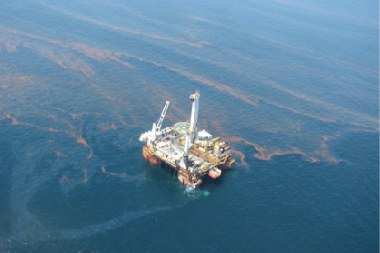Senior industry figures have explained to the US oil spill commission how the nuclear industry used self-regulation to transform levels of safety and performance.
Appearing on 25 August before the National Commission on the BP Deepwater Horizon Oil Spill and Offshore Drilling were Jim Ellis, president and CEO of the Institute of Nuclear Power Operators (INPO), and the organisation's chairman emeritus, Zack Pate.
On establishing the commission in May, President Barack Obama said, "First and foremost, what led to this disaster was a breakdown of responsibility on the part of BP and perhaps others, including Transocean and Halliburton." The purpose of the commission is to make recommendations to America on "how to prevent and mitigate the impact of any future spills that result from offshore drilling."
 |
| The oil business will have to raise its standards dramatically |
INPO itself was born of a similar time, when the US nuclear industry was shocked by the partial meltdown of Three Mile Island 2 and thus was the subject of a similar commission, headed by John Kemeny. Ellis said that accident had been caused "by a combination of human error, equipment and design problems," but more broadly, "showed weaknesses in the industry's approach to operational standards, training, the sharing and use of industry operating experience, and emergency response."
Addressing these issues as well as the recommendations of the Kemeny Commission, INPO was established as a peer-review self regulatory body for the US nuclear industry. Since then, Ellis said, "there have been significant performance improvements in essentially every measure of safety and reliability."
In the 1980s, a typical US nuclear reactor would produce about 63% of the maximum possible power in a year; Today the figure is around 91%. Automatic shutdowns used to come about seven times per year and now the average reactor has none. At the same time, routine radiation exposure to plant workers has dropped by a factor of six.
Excellence and involvement
Ellis said certain key factors in INPO's approach have contributed to the US industry's progress. One is INPO's mission "to promote the highest levels of safety and reliability - to promote excellence." He continued: "the distinction of promoting excellence rather than regulatory compliance is fundamental to INPO's role in helping improve nuclear power performance."
| "We specifically, legally and philosophically cannot act as an advocate for the nuclear power industry - that is not our role. Our role is to help the nuclear power industry set and achieve the highest standards of safety and excellence in operational performance" Jim Ellis President and CEO of INPO |
Another key aspect of INPO is the direct involvement of nuclear CEOs, who, for example, personally receive the sometimes painful feedback that comes from peer reviews.
Lastly, INPO's effectiveness partly stems from its ability to exert peer pressure and sanctions. In some cases, during INPO’s first 15 years, the organization persuaded companies to shut down plants or delay their start-up until specific safety-related issues were resolved. Ellis says INPO can take formal follow-up actions when a plant exhibits a lack of responsiveness or chronically poor performance. INPO actions are supported by its board of directors, which is composed entirely of nuclear utility executives. In addition, the numerical value assigned to plant performance is a consideration in the reactor's insurance costs with the industry's collective insurance company
Co-chair of the commission William Reilly welcomed a chance to hear about INPO, noting that its version of self-regulation had been a "great success... as an important safety complement to - not a substitute for - government oversight and regulation."
Researched and written
by World Nuclear News














